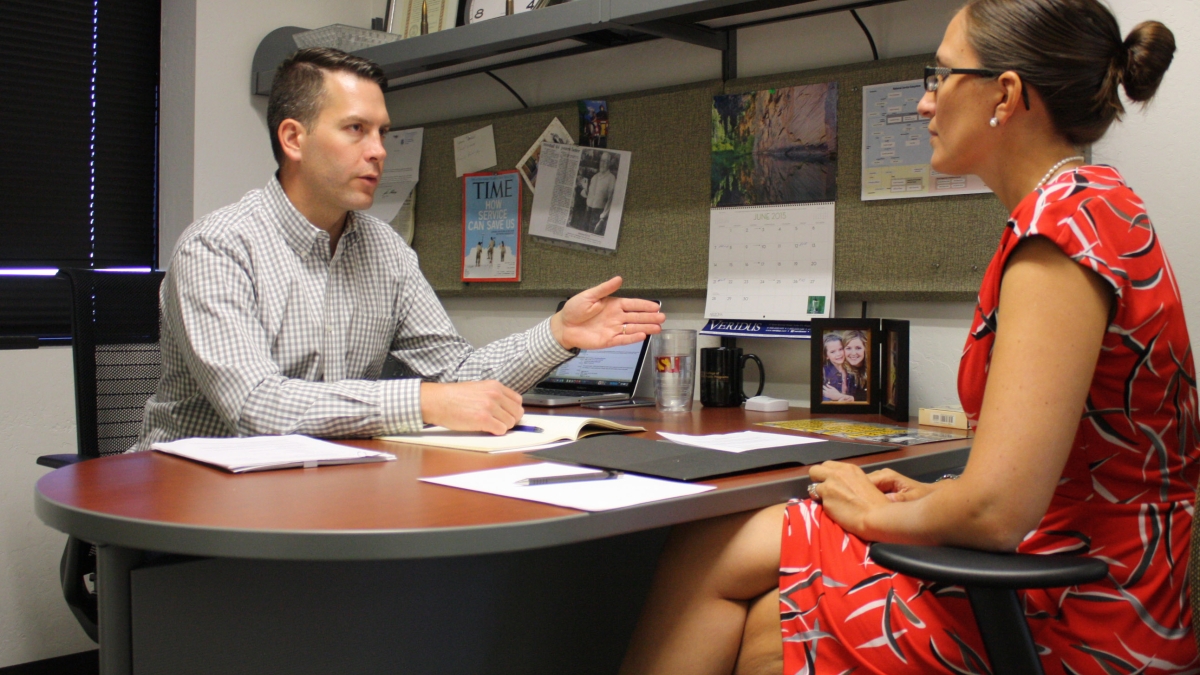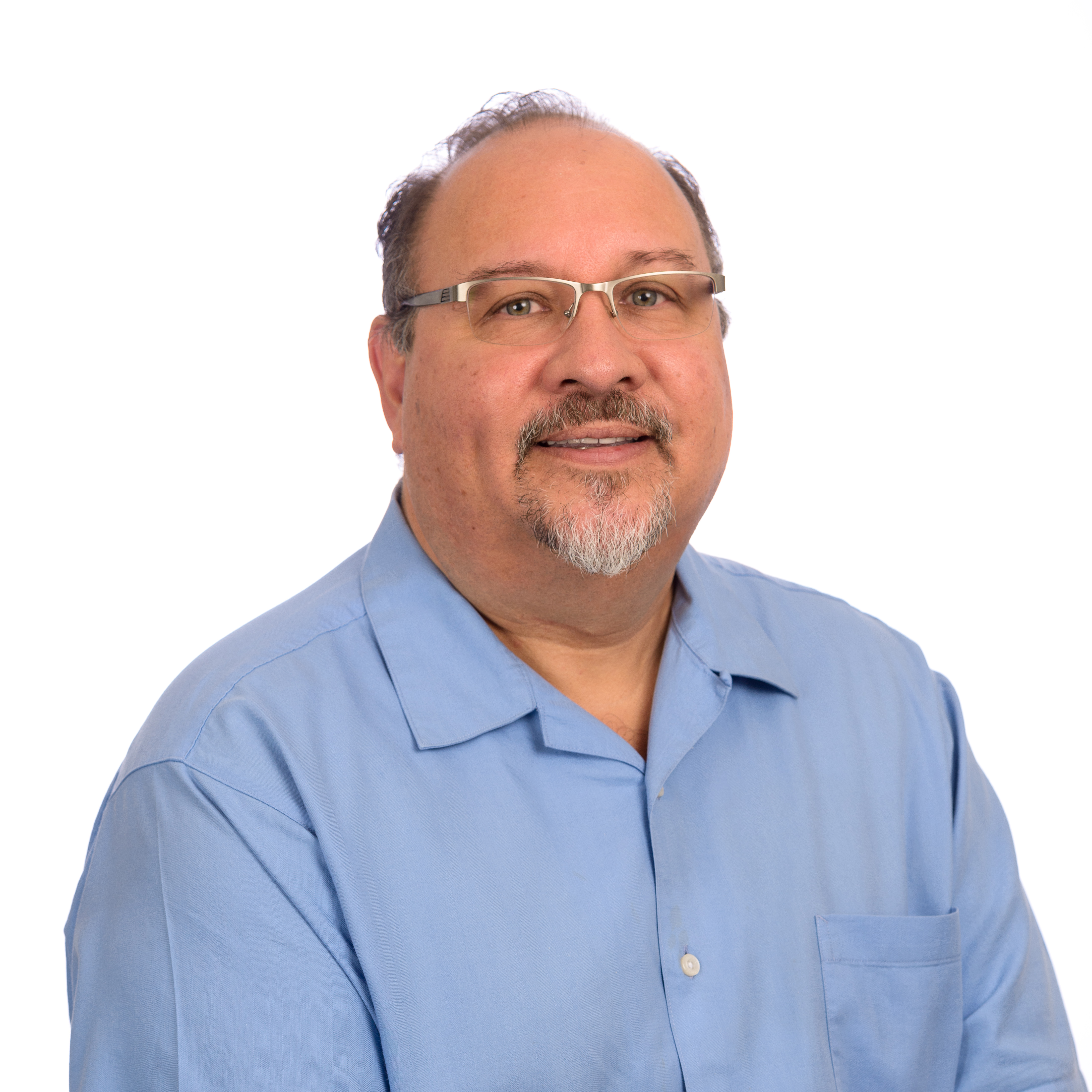In his first public comments since leaving the White House, former President Barack Obama on Monday called for an increase in civilian leadership while avoiding any criticism of his successor, Donald Trump.
The message of engagement aligns well with ASU’s efforts from the Center for Political Thought and Leadership, the Center for Race and Democracy, the Civic Economic Thought and Leadership, the School of Civic and Economic Thought and Leadership, and the Public Service Academy.
Obama's avoidance of political critique falls in line with tradition of outgoing presidents staying mum on new administrations.
For this combined Q&A, ASU Now reached out to a pair of university experts to help contextualize it all: Brett Hunt, founding executive director of ASU's Public Service Academy, discusses engagement and leadership; and Richard Herrera, associate director and professor in the School of Politics and Global Studies, expands on the role of ex-presidents in public life.
Question: What did you think when Obama called for the next generation of leaders in his comments Monday in Chicago?
Brett Hunt: President Obama correctly identified a civilian leadership crisis in this country, and that should be no shock because we don’t train leaders to take on big challenges.
The military and several corporations do a great job of this, but on a national scale we don’t do anything to train the next generation of public and civic service leaders.
We shouldn’t be shocked when we have a crisis in Washington, D.C., in regards to the budget or those in Congress, because we haven’t trained the leaders that are capable of taking on those challenges. That’s why we disproportionately lean on the military for leadership, because they do train leaders.
So I applaud former President Obama’s recognition of the issue, and look forward to training the next generation of leaders.
Q: At ASU’s Public Service AcademyTraining the next generation of new leaders has been the primary charge of the Public Service Academy since its inception in 2015. The program was launched in part on the idea that "we've grown apart as a nation" and need to find ways to "get us back together," Hunt said. The Public Service Academy is a unit inside the College of Public Service and Community Solutions. , that is precisely your mission — to train the next generation of leaders. How did ASU get on this path?
Hunt: ASU President Michael Crow, in conversation with news legend Tom Brokaw, helped to identify the issue during an interview asking what can military leaders do for the country beyond their service.
ASU took that kernel of an idea and correctly identified that the nation needed leaders engaged in serving the nation in many different cross-sector capacities — private, public, nonprofit and military.
Two years ago, we debuted the Public Service Academy, which started with zero students and now has over 250 students.
Q: How are things going so far?
Hunt: The first thing I want to point out is the idea that millennials only think of themselves and are inward-looking is not correct in our experience. What we see are young, innovative people who don’t see barriers make outstanding leaders.
We have taken a model that essentially didn’t exist before this and built a four-year leadership development program that brings together academic components with leadership where students are put in charge of small teams working on real issues in a community. We’ve seen enormous and positive growth in many of our students.
We’ve also seen where it’s really hard, because this doesn’t exist anywhere else and we try and provide context for our students as they go out and engage in their leadership journey. We’ve had some successes, and we’ve had some setbacks; but we contemplate on all of these and use them as examples in the program.
This summer we have students taking off all over the world in internships and programs where they will develop their skills as a leader.
Q: Given how divided we are as a nation, how do you develop those skills in a nonpartisan way?
Hunt: We really focus, as the military does, on serving the nation and the obligation to serve the nation beyond trying to assign some political tilt to that.
We have students from all over the political realm, but their obligation is to build leadership capacity to deal with challenging issues that cross sector and are complex and inter-connected by a single solution.
What we see in these complex challenges is that they are not going to be solved by a political party or organization or a government but by leaders. Leaders who intuitively and instinctively who bring a nonpartisan solution to these complex issues. That’s what we train our students to do.
Q: What defines a strong leader?
Hunt: A strong leader has to be respectful but bold and character-driven. Being able to take everyone’s opinions into account but understand that it’s their decision to make, and they have to live with the consequences — good or bad — of their decision. They must have core values and live with those every day.
•••
Herrera, meanwhile, explains what we should expect from Obama based on tradition.
Question: Some expected Obama to speak out on President Trump's harsh criticism of his eight years in office or to bash the Republican agenda, but he didn't. Why do you think he went that route?
Richard Herrera: The best way to address that question is to say that perhaps there is an expectation from a lot of Democrats, but I’m not sure there’s an expectation or a wish on the part of Republicans to have the former president do anything other than stay in vacation mode. The expectations are being built more from Democrats than anyone else.
ASU Professor Richard Herrera
To answer your question, I believe Mr. Obama will follow in the footsteps of other presidents: When they do choose to talk about political issues — and they don’t always — but when they do, they tend not to invoke the current name of the president. They tend not to attack certain policies tied to the current president. They tend to talk about their own policies. They tend to talk about things they’d like to see but not get into the sort of back and forth with a sitting president.
Q: Why is it important for former presidents not to comment on a current administration’s term?
Herrera: It’s an unspoken protocol sort of like when a president-elect is not supposed to start engaging in policy work before they’re actually sworn into office. You actually saw some of that criticism when the Reagan and Trump administrations began. There was some criticism that they were intruding upon the governing process of a sitting president. So that’s what it looks like — somebody with a lot of political leverage is intruding upon a democratically elected president’s administration and is largely seen as out of bounds.
Q: Why do you feel there's an expectation from Democrats for Obama to speak up?
Herrera: There is no leader in the Democratic Party with the same stature as former President Obama, but they also don’t have either majorities in the House of Representatives and Congress.
They have a minority leader in both, but they don’t have a majority leader, a speaker of the House. So there is a void there. In that sense, they are sort of rudderless.
That could be part of why Democrats are wanting Obama to emerge as their voice because they don’t have one right now. None of the political leaders in the Democratic Party have the megaphone that the former president has, so that is what they’re seeking.
Where do they find their megaphone because they’re being drowned out?
Q: Do you envision Obama working behind the scenes to help prop the Democratic party back up again?
Herrera: Yes, I believe so.
My guess is that he’s going to lend his name, legacy and reputation to those efforts being made — for example — to those who are trying to make a difference in social and political issues such as congressional redistricting.
He'll lend his name and weight to those sorts of issues that he sees as helping not just Democrats but Americans who are hoping to be more directly heard in elections.
He’s committed to issues of inequality, so where there’s groups who are looking to advance those causes, he’s going to lend his weight. I don’t necessarily see him taking a leadership role in a founding organization that necessarily does that. I don’t see him forming something like the Clinton Foundation, but lending his weight and voice to other efforts that are already ongoing.
Q: What should the role of an ex-president be?
Herrera: There are no rules because there are not a whole lot of former presidents, and it’s a small club. Most former presidents take a lower profile. They tend not to engage with current presidents.
Top photo: Brett Hunt, director of the ASU Public Service Academy, discusses outreach with Jessica Eldridge, manager of public service opportunities for the College of Public Service and Community Solutions. Photo by Paul Atkinson/ASU
More Law, journalism and politics

ASU Law to honor Africa’s first elected female head of state with 2025 O’Connor Justice Prize
Nobel Peace Prize laureate Ellen Johnson Sirleaf, the first democratically elected female head of state in Africa, has been named the 10th recipient of the O’Connor Justice Prize.The award,…

Native Vote works to ensure the right to vote for Arizona's Native Americans
The Navajo Nation is in a remote area of northeastern Arizona, far away from the hustle of urban life. The 27,400-acre reservation is home to the Canyon de Chelly National Monument and…

New report documents Latinos’ critical roles in AI
According to a new report that traces the important role Latinos are playing in the growth of artificial intelligence technology across the country, Latinos are early adopters of AI.The 2024 Latino…

